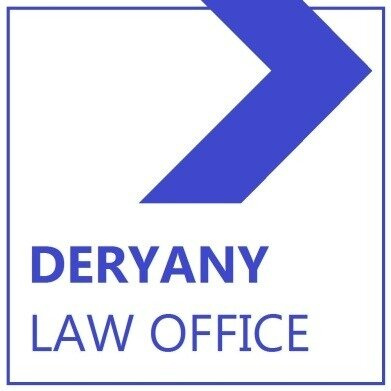Best Antitrust Litigation Lawyers in Indiana
Share your needs with us, get contacted by law firms.
Free. Takes 2 min.
Or refine your search by selecting a city:
List of the best lawyers in Indiana, United States
About Antitrust Litigation Law in Indiana, United States
Antitrust litigation in Indiana refers to legal disputes involving claims under federal and state antitrust laws. These laws exist to promote fair competition and protect consumers, businesses, and the overall marketplace from monopolistic practices, price-fixing, bid-rigging, and other forms of conduct that restrict trade. In Indiana, antitrust litigation may be pursued under federal statutes such as the Sherman Act and Clayton Act, as well as Indiana’s own antitrust laws. Litigation can be filed by the government or private entities that have suffered harm as a result of anticompetitive behavior.
Why You May Need a Lawyer
Antitrust litigation is a complex field involving intricate legal, economic, and factual issues. You may need an antitrust lawyer in Indiana if you are:
- Accused of violating antitrust laws by engaging in unfair competition, price-fixing, or monopolistic practices
- A business owner concerned about a competitor’s potentially illegal market behavior
- An individual or company who believes you have suffered financial harm due to anti-competitive practices
- Facing an investigation by government agencies for possible antitrust violations
- Involved in a merger or acquisition that could raise antitrust concerns
An attorney can help you understand your rights, assess your legal options, navigate government investigations, and represent you in court if necessary.
Local Laws Overview
In Indiana, antitrust issues are primarily governed by federal laws but the state also has antitrust statutes that mirror federal protections. Key points to be aware of include:
- Indiana Antitrust Act: This law provides a state-level framework for regulating anticompetitive practices such as price-fixing, boycotts, and monopolies within Indiana.
- Sherman Act and Clayton Act: These federal statutes apply in Indiana and deal with a wide range of anti-competitive behavior, including agreements that restrain trade and practices that may substantially lessen competition.
- State Enforcement: The Indiana Attorney General’s Office can investigate and prosecute violations of antitrust law both independently and in cooperation with federal agencies like the Department of Justice.
- Private Actions: Businesses and individuals who have been harmed by antitrust violations can file lawsuits in Indiana courts to seek damages.
- Remedies: Courts can order various remedies, including monetary compensation, injunctions to stop illegal practices, and changes to business conduct or structure.
Frequently Asked Questions
What is an antitrust violation?
An antitrust violation occurs when businesses engage in conduct that restricts competition, such as fixing prices, dividing markets, rigging bids, or establishing monopolies. These actions harm consumers and other businesses by limiting choice and increasing costs.
Who can file an antitrust lawsuit in Indiana?
Both private parties (such as businesses or individuals harmed by anti-competitive conduct) and government agencies like the Indiana Attorney General’s Office can initiate antitrust litigation.
What types of damages can be recovered in an antitrust lawsuit?
Successful plaintiffs might recover actual damages they suffered due to the violation. In federal antitrust cases, damages can be trebled, meaning the court can award three times the amount of actual damages.
How long do I have to file an antitrust claim in Indiana?
The statute of limitations for antitrust claims varies, but under federal law it is generally four years from when the cause of action accrues. State law limitations may differ, so timely legal advice is important.
Does the Indiana Attorney General enforce antitrust laws?
Yes, the Indiana Attorney General has authority to enforce both state and federal antitrust laws within Indiana. The office may investigate suspected violations and bring civil or criminal actions.
What are some examples of conduct that may lead to antitrust litigation?
Examples include competitors working together to fix prices or limit output, a company using its dominant position to drive competitors out of business, or illegal agreements dividing customers or geographic territories.
Are all business mergers subject to antitrust review?
Not all mergers are reviewed, but those involving large companies or industries that may significantly reduce competition are closely scrutinized by regulators for antitrust concerns.
Can individuals be held personally liable for antitrust violations?
Yes, individuals who participate in or direct antitrust violations may be held personally responsible and face civil or criminal penalties.
What is the difference between civil and criminal antitrust enforcement?
Civil enforcement seeks remedies like monetary damages and injunctions to prevent ongoing violations, while criminal enforcement involves prosecuting willful and serious violations that can lead to fines and imprisonment.
How can an antitrust lawyer help me?
An antitrust lawyer can evaluate your case, help you understand your rights and obligations, assist with compliance, defend you during investigations, and represent you in court or in settlement negotiations.
Additional Resources
- Office of the Indiana Attorney General: Investigates and prosecutes antitrust violations in Indiana.
- United States Department of Justice Antitrust Division: Provides national enforcement and guidance on antitrust laws.
- Federal Trade Commission (FTC): Regulates and investigates unfair competition and antitrust practices.
- Indiana State Bar Association: Offers resources for finding qualified antitrust attorneys.
- Local law libraries and university legal clinics: Provide research materials and sometimes free guidance to Indiana residents.
Next Steps
If you believe you have been affected by antitrust violations or are facing allegations in Indiana, consider taking these steps:
- Document any relevant communications or business activities related to the potential antitrust issue.
- Contact a qualified Indiana antitrust attorney for a confidential consultation to discuss your situation and legal options.
- Reach out to the Indiana Attorney General’s Office or relevant federal agencies if public interest or widespread harm may be involved.
- Follow your attorney’s guidance regarding communication with other parties, preservation of evidence, and responding to investigations or lawsuits.
- Stay informed by reviewing reputable resources and keeping up to date with changes in antitrust laws and enforcement trends.
Seeking professional legal advice early can help protect your interests and ensure compliance with Indiana and federal antitrust laws.
Lawzana helps you find the best lawyers and law firms in Indiana through a curated and pre-screened list of qualified legal professionals. Our platform offers rankings and detailed profiles of attorneys and law firms, allowing you to compare based on practice areas, including Antitrust Litigation, experience, and client feedback.
Each profile includes a description of the firm's areas of practice, client reviews, team members and partners, year of establishment, spoken languages, office locations, contact information, social media presence, and any published articles or resources. Most firms on our platform speak English and are experienced in both local and international legal matters.
Get a quote from top-rated law firms in Indiana, United States — quickly, securely, and without unnecessary hassle.
Disclaimer:
The information provided on this page is for general informational purposes only and does not constitute legal advice. While we strive to ensure the accuracy and relevance of the content, legal information may change over time, and interpretations of the law can vary. You should always consult with a qualified legal professional for advice specific to your situation.
We disclaim all liability for actions taken or not taken based on the content of this page. If you believe any information is incorrect or outdated, please contact us, and we will review and update it where appropriate.
Browse antitrust litigation law firms by city in Indiana
Refine your search by selecting a city.













